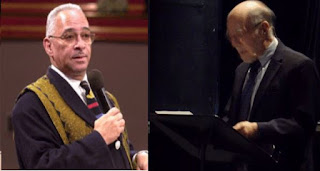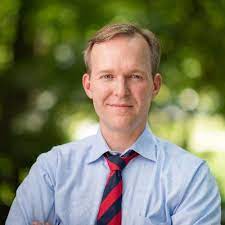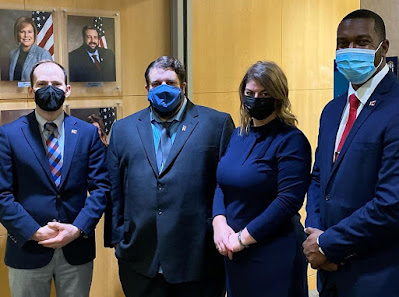[A version of this piece is cross-posted to Current]
How might one politically categorize the following statement?
[M]y
apparently disparate-sounding worries....all result from one or another move on
the part of the culture away from the immediate, the instinctual, the
face-to-face. We are embodied beings, gradually adapted over millions of year
to thrive on a certain scale, our metabolisms a delicate orchestration of
innumerable biological and geophysical rhythms. The culture of modernity has
thrust upon us, sometimes with traumatic abruptness, experiences,
relationships, and powers for which we may not yet be ready–to which we may
need more time to adapt....If we cannot slow down and grow cautiously, evenly,
gradually into our new technological and political possibilities and
responsibilities–even the potentially liberating ones–the last recognizably
individual men and women may give place, before too many generations, to the
simultaneously sub- and super-human civilization of the hive.
For those whose
exposure to or engagement with political ideas is fairly minimal–whether by
choice or by circumstance or both–the question would likely seem strange. After
all, there are no obvious partisan markers anywhere in this statement, no
references to presidential candidates or global events or policy disputes. So
what is political about it? But for those who have some familiarity with the
history of political ideas and arguments, as well as some of their attendant
philosophical formulations and literary tropes, there are flags in this
statement which suggest an answer–and that answer, in all likelihood, would be
“conservative.”
Not
“conservative” in the way most Americans would be likely to use the term today,
to be sure. The passage doesn’t provide anything that connects to Donald Trump
or lower taxes or tighter immigration or anti-LGBTQ positions or the Supreme
Court, at least not directly. But astute readers would pick up on the final
sentence’s reference to Friedrich Nietzsche’s “last man,” his vision of a
humanity that has succumbed to nihilism, hedonism, and passivity, and thus
falls into a kind of groupthink where all individual accomplishments are lost.
The passage also speaks warningly about developments and innovations of
modernity which humanity, whose embodiment reflects a deep evolutionary
grounding in small-scale interactions, needs to be far more cautious about embracing.
Hence, the politics of this passage could be–and, I think, would be, if read
without any additional context–plausibly coded as small-c conservative, or at
least as philosophically anti-progressive. Its implications include a
preference for the local, a suspicion of intellectual abstractions, a
discontent with the ennui that consumer wealth and technological ease has
enabled, and a fear of a too-rapidly pursued future whose liberating
possibilities will likely be lost unless they are approached incrementally (if
at all). In short, it communicates a respect for, even a valuation of, a more
limited conceptualization of our social world–and, aside from certain strains
of environmental concern within the current constellation of liberal thought,
talk of “limits” is generally seen as the provenance of conservatives, not
progressives.
 And yet, the
author of this passage is George Scialabba, a man of–as was once not
infrequently said of writers like him–“the left.” Scialabba is a highly
regarded essayist, book review, and public intellectual, whose latest
collection, Only a Voice:
Essays (Verso, 2023), is a brilliant collection of insightful readings
and contrarian arguments about some of the most important thinkers and writers
of the past century, and some from centuries earlier: Adam Smith, Thomas Paine,
T.S. Eliot, Leo Strauss, Irving Howe, I.F. Stone, and many more. The essay
“Last Men and Women,” a survey of criticisms of mass society and modern
democracy, includes the passage quoted at the beginning of this essay, but also
this plain self-description: “[This]...is where I also stand–with the
Enlightenment and its contemporary heirs, and against Straussians, religious
conservatives, national greatness neoconservatives, Ayn Randian libertarians,
and anyone else for whom tolerance, civic equality, international law, and a
universal minimum standard of material welfare are less than fundamental
commitments.” Whatever else might be said about that self-description (which
was published in 2021), it doesn’t sound at all “conservative,” even in the
small-c sense. So should we conclude therefore that Scialabba is simply
inconsistent? Or might there be a political categorization which can, in a
theoretically consistent way, capture both his progressive Enlightenment
aspirations, and well as his worries about the same?
And yet, the
author of this passage is George Scialabba, a man of–as was once not
infrequently said of writers like him–“the left.” Scialabba is a highly
regarded essayist, book review, and public intellectual, whose latest
collection, Only a Voice:
Essays (Verso, 2023), is a brilliant collection of insightful readings
and contrarian arguments about some of the most important thinkers and writers
of the past century, and some from centuries earlier: Adam Smith, Thomas Paine,
T.S. Eliot, Leo Strauss, Irving Howe, I.F. Stone, and many more. The essay
“Last Men and Women,” a survey of criticisms of mass society and modern
democracy, includes the passage quoted at the beginning of this essay, but also
this plain self-description: “[This]...is where I also stand–with the
Enlightenment and its contemporary heirs, and against Straussians, religious
conservatives, national greatness neoconservatives, Ayn Randian libertarians,
and anyone else for whom tolerance, civic equality, international law, and a
universal minimum standard of material welfare are less than fundamental
commitments.” Whatever else might be said about that self-description (which
was published in 2021), it doesn’t sound at all “conservative,” even in the
small-c sense. So should we conclude therefore that Scialabba is simply
inconsistent? Or might there be a political categorization which can, in a
theoretically consistent way, capture both his progressive Enlightenment
aspirations, and well as his worries about the same?
I think there
is–though, as with all ideological labels, it’s a categorization with greater
use as a conversational reference than as an analytical tool. The label is
“left conservatism,” and applying it to Scialabba’s writings–or, perhaps more
accurately, using Scilabba’s writings to apply the label more broadly–is an
intellectual exercise worth engaging in, especially in our moment when so many
other political categorizations seem either overthrown or irrelevant or both.
 The
term “left conservative” is hardly new; it’s been coined and re-coined multiple
times over the decades. Most recently, the term been revived in some conservative
publications
to describe a mix of anti-globalist, socially conservative, pro-labor, subsidiarian
perspectives which recognize the need for protectionist action to strengthen
national economies and local cultures. Those considerations are accurate, so
far as they go. But to really dig into the idea–and to assess its fit with
Scialabba’s incisive considerations of our moment–we need to look to an earlier
expression of it, one found in the third-person self-description Norman Mailer
provided in his book Armies of the Night:
“Mailer was a Left Conservative. So he had his own point of view. To himself he
would suggest that he tried to think in the style of Marx in order to attain
certain values suggested by Edmund Burke.” What is it that Mailer was
describing there, this Marxian-style attainment of Burkean principles? By “the
style of Marx” one must presumably mean employing a revolutionary, or at least
structural, set of intellectual tools, ones addressed to emancipation of
persons and goods in society; by “values suggested by Edmund Burke,” one must
presumably be talking about local communities and the traditions they give life
to, and the need to maintain and strengthen them. So how to put that together?
The
term “left conservative” is hardly new; it’s been coined and re-coined multiple
times over the decades. Most recently, the term been revived in some conservative
publications
to describe a mix of anti-globalist, socially conservative, pro-labor, subsidiarian
perspectives which recognize the need for protectionist action to strengthen
national economies and local cultures. Those considerations are accurate, so
far as they go. But to really dig into the idea–and to assess its fit with
Scialabba’s incisive considerations of our moment–we need to look to an earlier
expression of it, one found in the third-person self-description Norman Mailer
provided in his book Armies of the Night:
“Mailer was a Left Conservative. So he had his own point of view. To himself he
would suggest that he tried to think in the style of Marx in order to attain
certain values suggested by Edmund Burke.” What is it that Mailer was
describing there, this Marxian-style attainment of Burkean principles? By “the
style of Marx” one must presumably mean employing a revolutionary, or at least
structural, set of intellectual tools, ones addressed to emancipation of
persons and goods in society; by “values suggested by Edmund Burke,” one must
presumably be talking about local communities and the traditions they give life
to, and the need to maintain and strengthen them. So how to put that together?
The most
intellectual plausible articulation of this idea, I think, is to say that
modernity–whether that is dated to the Protestant Reformation, the Declaration
of Independence, the Industrial Revolution, or any other particular historical
landmark or era–is simply different from what came before it. The 18th-century
(and earlier) traditions and communities which Burke defended cannot exercise
the authority they once did in a world in which individual subjectivity has
conditioned our very understanding of the self. Technology, social fluidity,
capitalism, democracy: all are genies let out of the bottle, in the face of
which traditions of all kinds suffer. (Marx’s famous statement in The Communist Manifesto that, with
industrialization, “all-fixed, fast-frozen relations, with their train of
ancient and venerable prejudices and opinions are swept away....all that is
solid melts into air, all that is holy is profaned,” is an obvious support to
this formulation, but Scialabba himself adds one as well, describing Burke’s own
writings as “expressions of outraged common sense” in the face of the
inevitable—and, he asserts, entirely justified—transformations that came with
the expansion of suffrage and other “democratic truths”). Hence, the
preservation of Burkean values–acting “conservatively,” in other words--now
requires actions which go beyond the expansion of liberal guarantees or the
amelioration of socio-economic disruptions.
This reading of Mailer may simply sound like the conservative insight famously expressed by G.K. Chesterton in his book Orthodoxy: “If you leave a white post alone it will soon be a black post. If you particularly want it to be white you must be always painting it again; that is, you must be always having a revolution.” But the “revolution” invoked by Chesterton in the name of conserving a particular state of affairs was a formal, not structural one, whereas the better understanding of Mailer’s point about “think[ing] in the style of Marx,” I believe, means something truly “left”in the structural, even radical, sense. Maybe, the left conservative thinks, only a radical shift towards the democratization, the socialization, and the equalization of the products and processes of modernity will be sufficient to enable people to continue to thrive in their communities.
And it really
is communities which are central here. (One could argue that “left
conservatism” might better be expressed as “left communitarianism,” and there’s
some value to putting it that way. But since the connections and commonalities
which emerge in the context of communities are, I think, something that human
beings, as political animals, always seek to construct and always mourn the
absence of–and here I am heavily influenced by the writings of Michael Walzer and Charles Taylor, two political
philosophers that were frequently labeled “communitarians” when that
term enjoyed a boomlet 30 years ago–focusing on the concern to literally conserve
that which is genuinely valuable about our communities is appropriate.) Our
individualistic age puts an asterisk of suspicion beside all communities,
however defined, seeing them all as potential sources of majoritarian abuse or
undemocratic tyranny–which, of course, they too often are; as Christians at
least ought to be quick to acknowledge, we are fallen beings, after all. But
the conservative desire for belonging and rootedness and community, whatever
evils it enables, also grounds both democratic and egalitarian possibilities:
traditions are forms of meaning and fulfillment which cannot (or at least
cannot easily) be turned into abstractions and thus be taxed away from you or
turned against you by those who wield power. To the extent that the modern
world sees profits, procreation, wars, borders, religions, holidays, families,
markets, marriages, and more as institutions and events best understood,
conducted, and transformed in light of some abstract principle--whether that be
individual rights or personal conscience or democratic harmony or economic
progress--one could argue, if one is of this particular conservative
orientation (as I think Scialabba is, at least partly), that something in the
modern world has gone wrong, or at least has gotten too far away from the
instinctual truths and embedded necessities of human existence, truths and
necessities which are the necessary (if not sufficient) prerequisites to treating
all people as equally capable of self-rule and equally deserving of respect.
That’s not necessarily a defense of all communities, especially not national
ones, which too regularly employ the coercive power of the state to maintain
the definition and borders which those in power decide upon; Mailer’s
communitarianism, a term he probably would have blanched at, was decidedly small-scale
and anarchic. But the centrality of being in connection with others, and
defending those connections, remains.
Not many have
picked up on this reading of Mailer’s ideas in the two generations since, to
say the least. On the left or progressive liberal side of America’s
intellectual divide, as it began to deepen and sharpen in the decades following
the upheavals of the 1960s, leftism mostly focused its decreasing energies on
various statist parties and platforms, while most liberals came to treat those
who worried about the excesses of their individualistic liberatory language as
either 1) accidental intellectual traitors (as it was frequently expressed at a
UC-Santa
Cruz conference on the “specter of left
conservatism” in 1998, these unfortunate folk are genuine leftists whose
distaste for the latest theoretical developments has tricked them into allying
with conservative forces), or 2) just remnants of an old rural conservative
Democrat faction, soon to die out. That’s assuming White voters were the ones
being discussed, of course; the religiousity and social conservatism of many
Black voters was treated very differently, though not until Bill Clinton was its
preferred language given much credence, and even that didn’t last–Barak Obama,
our first Black president, reflected very little of that sensibility while in
the White House (which, cynically speaking, is perhaps one of the reasons he
was able to attain it.)
As for
America’s rightward flank, the rise of a pro-business, anti-socialist
libertarianism as a component of the Republican coalition from the 1960s
through the 1990s made any kind of liberal egalitarianism, much less leftism,
unwelcome there. Occasionally you see attempts to import into American
conservative discourse “Red Tory” formulations more common to Western European
conservatism generally, but despite gestures in that direction (George W.
Bush’s “compassionate conservatism,” for example), none of them have in any
significant way shaped the overall conservative coalition in the U.S. Of
course, some would insist upon adding a “until the rise of Donald Trump in
2016” to that sentence, and it is true that Trump’s profound lack of
ideological (much less ethical) grounding has arguably presented an opening for
leftist ideas to experience a revival in Republican circles. But while in
today’s America you are, in fact, more likely to hear talk of structural or
revolutionary changes to our liberal capitalist and democratic order coming
from the Trumpist corner of the Republican party than from the Democrats led by
Joe Biden, that talk is generally, and tragically, reflective of a
fascist-adjacent authoritarianism which too many social conservatives,
following Trump, seem to have become comfortable with. Even thoughtful
and nominally worker-friendly treatments of the integralist argument in
favor of more firmly supporting traditional community-based values seem to
presume egalitarianism itself to be the real problem, and what limited
appreciation for the solidarist approach to building economic equality–meaning
unions, mainly–which still exists in America today is found coming the
Democrats and the White House, not Mar-a-Lago.

All
of which means that the left conservative position lacks a broad constituency
in American politics. But that does not
mean it lacks a voice. Perhaps most influentially, the historian Christopher
Lasch, long a hero to many dissident and contrary conservatives (even as he
remained personally a committed Democratic voter and a firm-if-worried supporter
of the liberal egalitarian project overall through his life), and someone who
himself never used terms like “left conservative” or “communitarian” in a self-descriptive
way (even as close students of Lasch work subsequently used both),
articulated at least the outlines of what could be called a left conservative
ideology as well as anyone. And Scialabba presents, in multiple essays, Lasch
as perhaps the most valuable of all the “antiprogressives” (which is not
the same as “conservatives”) whom he holds that fans of the Enlightenment, like
himself, must learn from.
That learning,
he writes, involves grappling with the best thinkers’ “combination of
discrimination and democratic passion,” defining the latter as “the constant
remembrance that democracy entails not merely that the people should be
governed well but also that the people should govern.” Mourning the tendency of
intellectuals and politicians of all stripes–including both what he calls “the
business party” and “the Progressives”–to ignore this fundamental principle,
Scialabba’s cast of heroes includes, as he lays them out in his introduction to
Only a Voice, scholars and activists
and writers who, in one way or another, demonstrate a “moral intelligence” that
“allowed them to make relevant distinctions and get the difficult decisions
right.” This means, rather than simple apologists for the Enlightenment, such
figures as Randolph Bourne, George Orwell, Irving Howe, Barbara Ehrenreich,
Noam Chomsky, Ralph Nader, Richard Rorty, Bill McKibben, along with Lasch, earn
his praise. These are people who, in his view, take seriously their “democratic
obligation to persuade people before legislating for them”–and that means
taking seriously the “anxieties about modernity” which confront all those whom
these thinkers and writers, like Scialabba himself, attempt to clarify the
democratic options for. The responses to this anxiety which these writers all
wrestled with obviously vary greatly, from Rorty’s advocacy of setting aside
worries about “self-creation” in the name of a bland yet vital “tolerance,” to
Howe’s insistence that the ideal of socialism “will need to be reimagined in
every generation,” to, perhaps most centrally, Lasch’s populist insistence the
“the democratic character can only flourish in a society constructed to the
human scale.” Yet Scialabba thoughtfully considers–and by so doing, makes it
possible to learn from–them all.
That this
practice of thoughtful learning includes giving sympathetic attention to what
he calls “perhaps the most significant strain of social criticism in our time,”
the “antimodernist radicalism” of limits one can find in writers like D.H.
Lawrence, Lewis Mumford, Ivan Illich, Wendell Berry, or Lasch himself, is not
entirely pleasing to even some of Scialabba’s most enthusiastic readers. In a
review essay on Only a Voice in
Commonweal, Sam Adler-Bell gently suggests that Scialabba misunderstands
that modernity’s anxieties and doubts are less to be responded to than embraced
as actually one of its strengths: the modern person “is not necessarily a
conformist, a face in the crowd, incapable of independent thought,” but rather
“is someone who detects these frailties in everyone else.” This is a subtle
point, and a good one, but it also strikes me as an inverted application of
Robert Frost’s famous comment that a liberal is someone too broad-minded to
take their own side in an argument. Scialabba is far too conscientious a
thinker to deny the immense accomplishment of Enlightenment liberalism in
teaching people to be skeptical of the limits and presumptions they inherit or
which have been imposed upon them. But he also recognizes, as anyone with even
a smidgen of leftist suspicion of the bourgeoisie should, that such skepticism,
without a foundation in practices and places and, yes, even prejudices–in the
sense of “pre-judgments”–to draw upon, will often result not in robust,
democracy-defending free-thinking, but rather in a literally care-less
disconnection, a tendency to abstraction which capitalist overlords will be
more than happy to use to manipulate and oppress. As Scialabba writes in
“Progress and Prejudice,” the first and most overarching essay in Only a
Voice, he has come to recognize “with some reluctance” that thinkers like
Lasch are correct: that “as long as modernization is involuntary,” then
conserving our ability to draw upon and stay within “our own skins—and even,
perhaps, within traditional social forms” is needed, if our “every liberation”
is not to be “captured and exploited.”
Left
conservatism is one way of articulating a set of political convictions that
can, at least as a matter of theory, see this needle, the needle which
modernity has presented us with, and thread it, thus enabling the continued
project of weaving together (or sewing up tears within) our democratic
political fabric. Scialabba, through his writing over the decades, like Lasch
himself in decades prior, has been an insightful advocate for the kind of
democratic learning which all of America’s diverse communities need–a learning
which reminds us of modernity’s liberating and equalizing accomplishments, and
what must be conserved if the left’s emancipatory project is to continue.
Whether this political categorization fits him well or not, his position is one
much worth contemplating–an action which would have to begin with reading his
most recent, and excellent, book.












